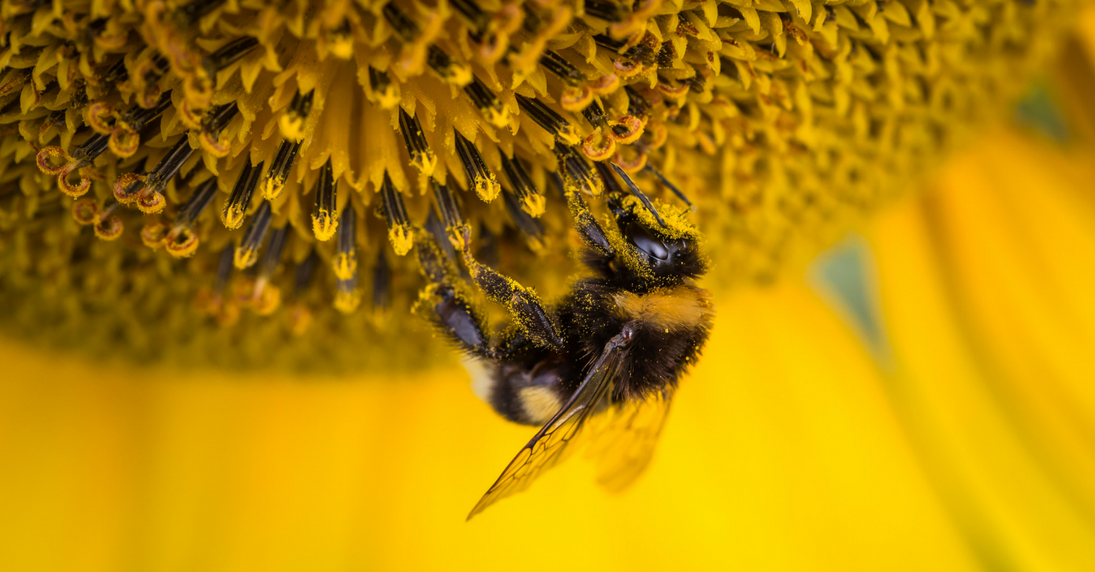
Past participants of our Cool Choices sustainability programs for businesses, organizations and communities, continue to make green choices in their everyday lives – even after the program ends. We are always impressed to learn how participating in Cool Choices impacts individuals and their decisions to take further sustainable actions. This month we were inspired by Emily’s story. Plus, we give helpful tips on how to start your own garden using pollinating-friendly, native plants.
What green activities have you been up to since taking part in the Cool Choices program?
I have started my own edible landscaping business. I am encouraging people to plant more pollinator-friendly, edible, and native plants.
What tips do you have for others trying to be sustainable?
Just plant something! The best way to learn is by doing, so get growing!
After participating in Cool Choices, Emily started her own sustainability-focused business! Now, how cool is that!
For those interested in taking Emily’s advice to “get growing,” We have outlined a few key concepts and ideas to growing sustainable gardens at your home!
Pollinator-Friendly Plants: The What and the Why
Pollinator-friendly plants are plants with flowers that attract pollinating insects and animals, like bees, butterflies, and hummingbirds. These pollinators feed on the flowers, the circulate the pollen from flower to flower, helping the plants spread their seeds. Why is this important? You’ve probably heard of the decline in the bee population. There are many reasons for this, including land use, pesticides, and climate change to name a few. Focusing on planting organic pollinator-friendly plants can help fight this decline, and ultimately aid in the economic increase and stability of some agricultural crops in key areas of the US.
In fact, 70 of the top 100 food crops grown for human consumption are pollinated by bees, accounting for an astonishing 90% of the world’s nutritional supply. Due to a variety of factors, including an increase in chemical pesticide use and loss of natural habitat, pollinator populations are at an all-time low. Planting pollinator-friendly plants ensures that pollinating animals have access to food so that they can fertilize plants in your garden as well as nearby gardens and farms.
Benefits of Growing Native Plants
So now that we have the reasons covered as to why we need to plant pollinator-friendly plants – what should those plants be? While your choice should reflect your lifestyle, tastes, and geography, we recommend planting species that are native to your state and location. Native plants have already adapted to the local environmental conditions – so they are easier to grow and more likely to flourish in the conditions. Native plants also reduce the introduction of invasive species and provide food and shelter for native wildlife.
To discover what native plants are found in your region, simply enter your zip code, and Native Plant Finder will provide a free guide to native flowers, grasses, trees, and shrubs your region. The website also offers a guide to pollinating butterflies and and option for you to save your favorites of each.
Growing Pollinator-Friendly Native Plants at Home
Use the above mentioned resource to find native, pollinating plants in your region. Once you have your plants picked out, it is important to avoid using pesticides and chemical fertilizers to ensure pollinators such as bees and butterflies stay healthy. A great organic alternative to store-bought fertilizer is to make your own compost fertilizer at home! Finally, provide water for pollinators using a birdbath or small basin to catch rainwater.
Make your garden both beautiful and beneficial to the planet by planting pollinator-friendly gardens. Doing so will help protect pollinator populations from dropping and maintain crop yields into the future.
Emily took part in the 2015 City Wide Cool Choices program in Madison, WI. Is your company, organization, or community interesting in accelerating your sustainability efforts? Contact us to learn more, or sign up for a webinar!
Comments are closed.




